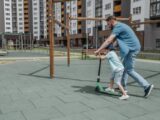
Senior Dementia Sufferers: How Should You Care for Them?
February 5, 2022When physical and mental changes necessitate increased elderly care, the march of age can be a hard time. The “sandwich generation” often notices their elderly parents losing their strength, function, and memory. So, how do you provide care for elderly people with dementia?
How To Take Care of Senior Dementia Sufferers
Young adults bear a twin responsibility: caring for and raising their own children and caring for and comforting their elderly parents. As hard as it may be to see your parents’ age, it can be even more difficult for an aging person to deal with their physical or mental health loss. Here are some ways to deal with elderly people suffering from memory loss.
1. Learn about dementia.
Dementia is characterized by progressive memory loss. As a result, it is often neglected as a potential cause of cognitive decline. Some of your aging parents may have confided in you about their tendency to lose track of details as they age. For example, Alzheimer’s disease is just one of several forms of dementia. Alzheimer’s patients see memory loss as a first and foremost symptom.
Therefore, they lose their capacity to make sound judgments and independently carry out even the most basic duties. It is burdensome for both the patient and those who care for the elderly. Getting help from expert caregivers and sending them to an elderly facility like RidgeView Assisted Living in San Diego will lift up your burden and ensure that the proper care will be given to them.
2. Observe the world through their eyes.
A person’s fear and fury might be triggered by forgetting or losing familiar memories. A harsh or disrespectful attitude toward caregivers can be one way this shows up. When you ask them about their day, they could get combative. You must get to know where they’ve been and what they’ve been doing.
3. Educate yourself about dementia’s progression.
You need to see if you’ll handle the changes that may occur and what symptoms to look out for. You must be prepared to deal with an elderly person with dementia who becomes hostile from time to time. In some cases, they may become introverted, refusing to participate in any conversation or activity. The more prepared you are for these scenarios, the more confident you will be in providing elderly care for your family members.
4. Plan for frequent responses and reroutes.
Short-term memory loss is a common difficulty for dementia patients’ loved ones. No matter how many times you’ve heard your elderly mother inquire what she had for breakfast that morning. You should always answer the question directly rather than dismiss it or provide a condescending response. Taking them to a nursing facility for skilled nursing care is not a bad option, especially if you can no longer provide their needed treatment. You have to meet their demands in the best way possible.
5. Refuse to get into a dispute.
Memory loss is a concern for the individual you’re looking after. Nothing you say or do will assist your loved ones in recalling what they do not. Statements like “Oh, you remember, we did this…” may actually cause more aggravation than not reflecting the activity.
Elderly care facilities like the memory care facilities in San Diego know how to effectively handle people with dementia. Its staff is trained to meet the unique requirements of its residents with cognitive impairments. It has support programs and activities that help people retain their best level of functioning.



